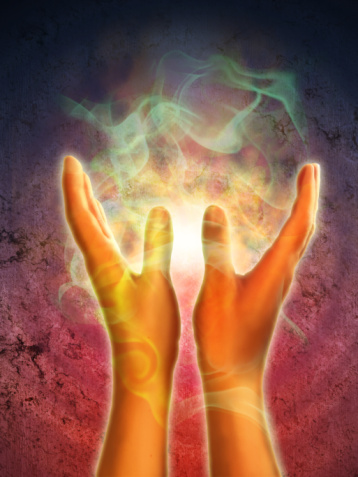 We recently had a question from a reader about the legitimacy of the Healing Room movement and whether or not it's okay for Catholics to participate.
We recently had a question from a reader about the legitimacy of the Healing Room movement and whether or not it's okay for Catholics to participate.For those who have never heard of it, Healing Room Ministries is an inter-denominational movement in which special rooms are set up in cities around the world where people can come to be prayed over for healing. The rooms are set up similar to walk-in medical clinics, with a waiting area, a reception desk and a private room for each session. Some of these rooms are located in churches, others in strip malls and store fronts. According to the International Association of Healing Rooms (IAHR), there are an estimated 535 Healing Rooms around the world, with the largest concentration being in the U.S. and Europe.
The Healing Rooms concept was the brainchild of a man named John G. Lake (1870-1935) who was a leader in the Pentecostal movement of the 20th century. Born in Ontario, Canada, his family moved to Michigan when he was a child. He grew up to become a missionary in South Africa where he served for many years before returning to the United States and establishing new churches, launching healing campaigns and setting up healing rooms.
It all sounds like a wonderful story, but controversy followed Lake from the earliest years of his life, mostly due to his penchant for exaggeration.
For example, he claimed to have graduated from a Methodist seminary, but there is no record of his attendance. In fact, census records cannot confirm anything more than 10 years of formal education.
At one time, he also claimed to have owned two newspapers and became a millionaire in the real estate business; however, evidence shows that he worked as a small-scale contractor, roofer, and house flipper. After returning from the African missions, he established the Divine Healing Institute and opened the first healing rooms, known at the time as "Lake's Divine Healing Rooms," however this endeavor was also plagued by accusations of fraud and exaggerated healings.
The IAHR website features a glowing bio of Lake and makes no mention of these controversies. Instead, the site focuses on the mission of their healing teams which is to "serve the community and the Body of Christ while contending for all that Christ promised the church would move in, 'the works that I do shall you do also and greater works than these' (John 14:12)".
Healing teams are comprised of local people who are trained either as intercessors - those who pray behind the scenes for individuals and those who are ministering to them - or as front-line teams who meet with the people seeking healing and lay hands on them in prayer. Part of their training is to learn what is an appropriate way to lay hands on someone and how to behave in a respectful way that will help the person in need of healing to feel comfortable.
All Healing Rooms must be multi-denominational and include members from the local Christian community including Protestants and Roman Catholics. However, involvement on a team does not mean the movement has been approved by any particular church. (I could find no indication that it has approval from the U.S. Bishops.)
Testimonials from these rooms run the gambit from healing of backaches to curing cancer and cataracts. Some claims are really bizarre, such as from those who claim lost organs or limbs were restored after they were prayed over. Unlike the Vatican which requires certification from medical personnel before declaring a healing legitimate, no proof is offered for any of these healings other than testimonials from people claiming to have been healed.
While the movement may have the right idea, it's also ripe for abuse because anyone can become a team member, including people involved in the New Age or who would love an opportunity to "convert" a Catholic to a Protestant congregation.
This could explain why the books of several controversial authors appear in their store, such as a book on the Sozo prayer movement by Beni and Bill Johnson and several works of Randy Clark, founder of the equally controversial Toronto Blessing ministry.
Because of how loosely run and monitored this movement is, I would avoid it. You can get the same kind of intercessory prayer from a variety of other sources in the Church, and your local charismatic prayer group will be happy to pray over you. If you stick to sources such as these, you don't run the risk of encountering someone with an agenda that doesn't quite match your own.
© All Rights Reserved, Living His Life Abundantly®/Women of Grace® http://www.womenofgrace.com
